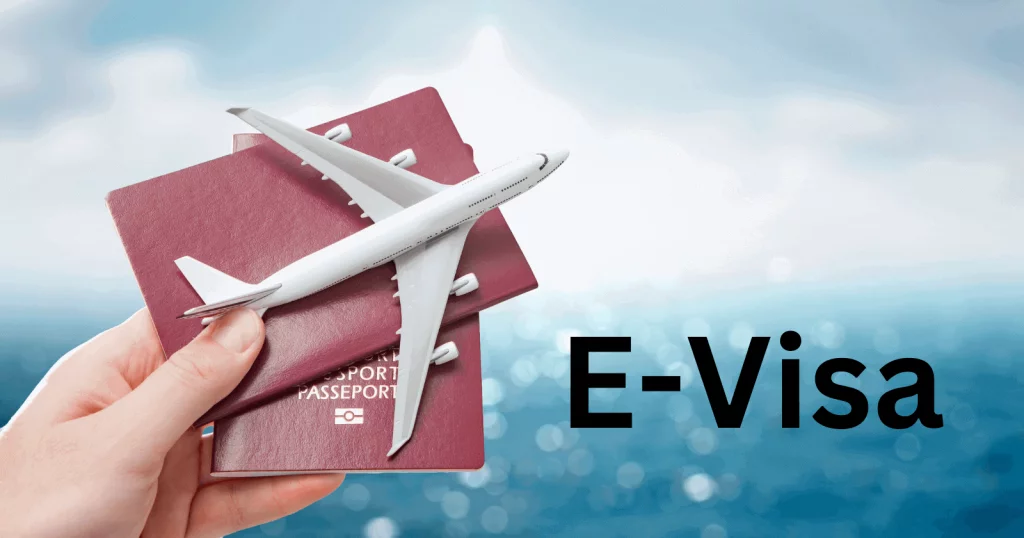Saudi Arabia, a land where ancient traditions meet cutting-edge innovation, has emerged as a global travel hotspot, attracting over 2.7 million visitors in the first half of 2025. For Europeans from the Mediterranean and Central Europe, the kingdom’s eVisa system offers a seamless gateway to its deserts, Red Sea shores, and vibrant cities. The SAUDI VISA FOR GREEK CITIZENS provides Greeks with an efficient digital process to explore Saudi’s cultural and economic landscape. Similarly, the SAUDI VISA FOR HUNGARIAN CITIZENS ensures Hungarians can easily plan journeys, from spiritual pilgrimages to business ventures in Riyadh. Aligned with Vision 2030’s ambition to welcome 150 million visitors by 2030, these visas reflect Saudi Arabia’s commitment to accessibility and hospitality. This article delves into the application processes, eligibility details, and practical tips tailored for Greeks and Hungarians eager to embark on an Arabian adventure.
Saudi Visa for Greek Citizens: A Mediterranean Gateway to Arabia
Greece, with its storied history and Aegean allure, shares a cultural curiosity with Saudi Arabia, making it a compelling destination for Greek travelers seeking heritage and modernity. The Saudi visa for Greek citizens, introduced under the 2019 eVisa initiative, simplifies entry for tourism, family visits, or short-term business, offering multiple entries over a one-year period with each stay up to 90 days, totaling 180 days annually. Eligible Greeks need a passport valid for six months beyond entry, a recent digital photo, and proof of accommodation, such as hotel bookings or an invitation letter. The application, processed through the official Visit Saudi portal, includes a fee of approximately $80 to $150, covering mandatory health insurance for medical emergencies.
The process is swift, with approvals typically arriving within 24 to 72 hours, though peak seasons like Ramadan may extend this to five days. Greeks can present their eVisa digitally or printed at entry points like King Abdulaziz International Airport in Jeddah or King Khalid in Riyadh, where smart gates with facial recognition streamline immigration to under 10 minutes. For Muslim Greeks, particularly from Thrace’s Muslim communities, the eVisa supports Umrah outside Hajj season, with bookings managed via the Nusuk app for seamless Mecca access. Health requirements, such as meningitis vaccinations for coastal areas, ensure safety in a climate where summer temperatures often exceed 40°C. Greece’s passport, ranked 6th globally in 2025, supports visa-on-arrival options at major ports, though pre-application is advised to avoid delays. This visa enables Greeks to explore Al-Ula’s ancient tombs, dive in Yanbu’s coral reefs, or engage in trade summits, leveraging the €2 billion Greece-Saudi economic ties.
Saudi Visa for Hungarian Citizens: Central Europe Meets Arabian Horizons
Hungary, with its rich history and Danube charm, finds a counterpart in Saudi Arabia’s blend of tradition and progress, drawing Hungarians for cultural exploration and business opportunities. The Saudi visa for Hungarian citizens mirrors the eVisa framework, accessible to EU nationals, offering the same one-year multiple-entry structure with 90-day stays per visit. Requirements include a passport valid for six months, a digital photo, and accommodation proof, with applications submitted online via the Visit Saudi portal. The fee, inclusive of health insurance, ranges from $80 to $140, and approvals typically land in 1 to 3 days, ideal for Hungarians planning trips from Budapest or Debrecen.
Visa-on-arrival options at hubs like Dammam’s King Fahd International Airport cater to spontaneous travelers, though online applications minimize wait times. For Muslim Hungarians, the eVisa facilitates Umrah, with 2025 reforms streamlining Mecca access through Nusuk-integrated bookings. Health protocols, including digital declarations via the Tawakkalna app, align with global standards, and vaccinations may be required during flu season. Hungary’s passport, ranked 9th globally, enhances regional mobility, with land borders like Al Batha from the UAE enabling overland entries. Hungarians can wander Jeddah’s historic Al-Balad, network at Riyadh’s LEAP tech conference, or explore Abha’s misty highlands, supported by Saudi’s upgraded infrastructure, including high-speed trains and new Red Sea resorts opening in 2025.
Practical Strategies for a Seamless Journey
Both Greeks and Hungarians navigate a unified eVisa process: complete the online form with personal and travel details, upload documents, and pay securely, with no interviews required. Accuracy is crucial—mismatched passport data can lead to rejections, though corrections are possible within 30 days. Entry ports, from Jeddah’s cruise-friendly seaports to Riyadh’s smart-gate airports, streamline arrivals with technology, reducing wait times significantly. Budget travelers benefit from affordable transport—Riyadh’s metro costs $2 per ride—and free sites like the National Museum, though premium attractions like Al Rajhi Grand Mosque tours average $20.
Cultural preparation enhances the experience: respect prayer times, when public life pauses, and wear modest clothing covering shoulders and knees. Women travelers enjoy relaxed guardianship rules since 2023, but carrying ID is advised. Hydration is vital against arid heat, and apps like Careem offer rides from $5. For Umrah, book early via Nusuk, especially for winter months. Business travelers should verify event-specific rules, as conferences like LEAP require precise documentation. Saudi’s infrastructure, from Haramain trains to new coastal resorts, elevates accessibility for all.
Embracing Saudi Arabia’s Global Invitation
The Saudi visa for Greek citizens and the Saudi visa for Hungarian citizens embody a kingdom eager to connect with Europe, inviting Mediterranean and Central European travelers to its heart. As Saudi Arabia’s tourism sector, contributing 7% to GDP in 2025, flourishes with heritage sites and futuristic hubs like NEOM, these visas ensure effortless access. Whether Greeks trace ancient trade routes or Hungarians explore modern skylines, preparation transforms logistics into gateways for discovery. With hospitality at its core, Saudi Arabia welcomes both nations to craft unforgettable narratives amid its sands, seas, and skyscrapers.


